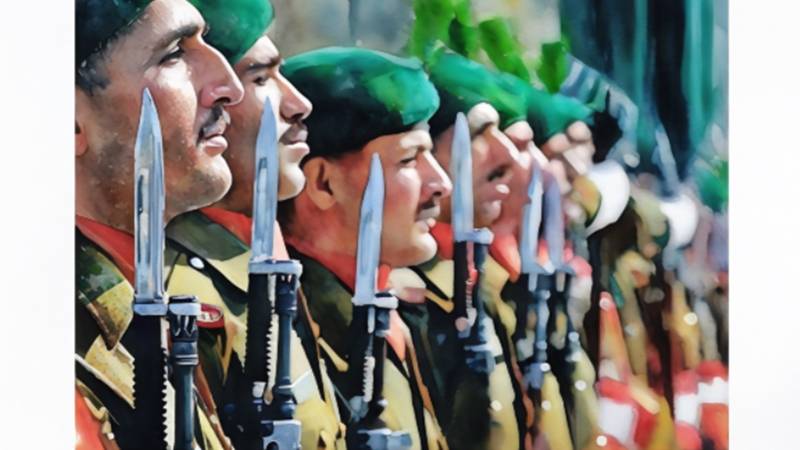
The illusion of democracy is worse than having no democracy at all. Why? Because the pretence associated with propagating the former is an insult to the intelligence, awareness and being of the people of a country. An unequivocally declared military coup on the other hand, despite its repercussions and negative optics on the global stage, makes things clear. At least it saves us from the mockery.
The operative question, though, is: why do democracies fail in the first place? Before answering that question, it would be prudent to explore the minimal definition of democracy. David Runciman in his book titled How Democracy Ends presents the minimal definition of democracy. The minimal definition of democracy says simply that the losers of an election accept that they have lost. Runciman goes on to provide a second shorthand for the minimal definition of democracy as well, being: the people with guns don’t use them.
In today’s Pakistan, we find our current “democratic” set up to be in direct contravention with the minimal definition provided by Runciman. In fact, it seems fair to assert that the democratic/political status quo in Pakistan is born from or is a by-product of that contravention. To the conscious Pakistani, it is obvious that we live in a state of pseudo-democracy: where we fail to satisfy even the most minimal standard of democracy.
Revisiting the operating question, a report presented by the Simon Commission in May 1930, may provide an answer. The Simon Commission was formed by the British colonial government for the purpose of conducting a fact-finding mission across British India on whether democracy would be suitable as an instrument of governance for India once the British departed. After 2 years of navigating through British India (modern-day India, Pakistan and Bangladesh), the Simon Commission published its report. The commission unequivocally rejected the idea of democracy as a suitable form of governance for India.
In today’s Pakistan, we find our current “democratic” set up to be in direct contravention with the minimal definition provided by Runciman
The reason? India was split as a nation. Split in religious beliefs, sects and factions within those religions, culturally, in language, geographically, historically and above all ideologically. For these reasons amongst others which stem from these core issues, it was impossible for the people to foster a cohesiveness amongst themselves which the British for example managed to attain in their society. Add economic polarisation, intolerance, hypocrisy and a lack of education to the preexisting list of problems from 1930, and you are able to contextualise present-day Pakistan and why democracy as a whole seems to be failing.
That being said, It may seem that we do live in a democratic society, as on the face of it, we have civilian politicians in Government, the 3 arms of the Government of the Islamic Republic of Pakistan seem to exist; The executive, the Parliament and the Judiciary and so one could argue that there is a false state of despondency within the Country, that there seems no need to panic. That’s the illusion, the mockery and insult we are compelled to believe.
The American political scientist Nancy Bermeo has recently identified six different varieties of a Coup, of which the traditional Coup d’etat is only one. The others are:
- “Executive Coups”, when those already in power suspend democratic institutions.
- “Election-day vote fraud”, when the electoral process is fixed to produce a particular result.
- “Promissory coups”, when democracy is taken over by people who then hold elections to legitimise their rule.
- “Executive aggrandisement”, when those already in power chip away at democratic institutions without ever overturning them.
- “Strategic election manipulation”, when elections fall short of being free and fair but also fall short of being stolen outright.
In none of these kinds of coup is it necessary for men in uniform to enter in at night and arrest high-ranking government officials and unequivocally declare that martial law has been enforced.
The important thing to comprehend is that whichever way you slice and dice the different types of coup, there is one fundamental distinction between them: some coups need to make clear that democracy is over in order to succeed; and some coups need to pretend that democracy is still intact. It’s all about keeping up appearance. Sounds familiar?
As to how we got here is a question to which the answer warrants a separate article and a deep study of our history. However, fundamental issues such as hypocrisy, intolerance, subversion of the written constitution and a political system based on convenience and divide are all reasons that form part of a non-exhaustive list. Majority of those who are aware of this state have become desensitised.
The state in the recent past and throughout our history has acted ruthlessly towards anyone who dared to take on the status quo. The solution lies in unity and our association with Pakistan. Unity against any person, institute, foreign or domestic threat which subverts democracy, if governance by way of democracy is still the will of the people. This unity must not only come from the people, our political leaders must unite as well, as their lack of unity and intolerance amongst each other is what enables those who desire to exercise control over matters beyond their remit.
As Dwayne Johnson says, “when your back is against the wall there’s nowhere to go, except forward”. We must move forward.

